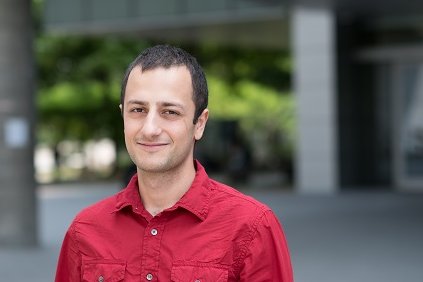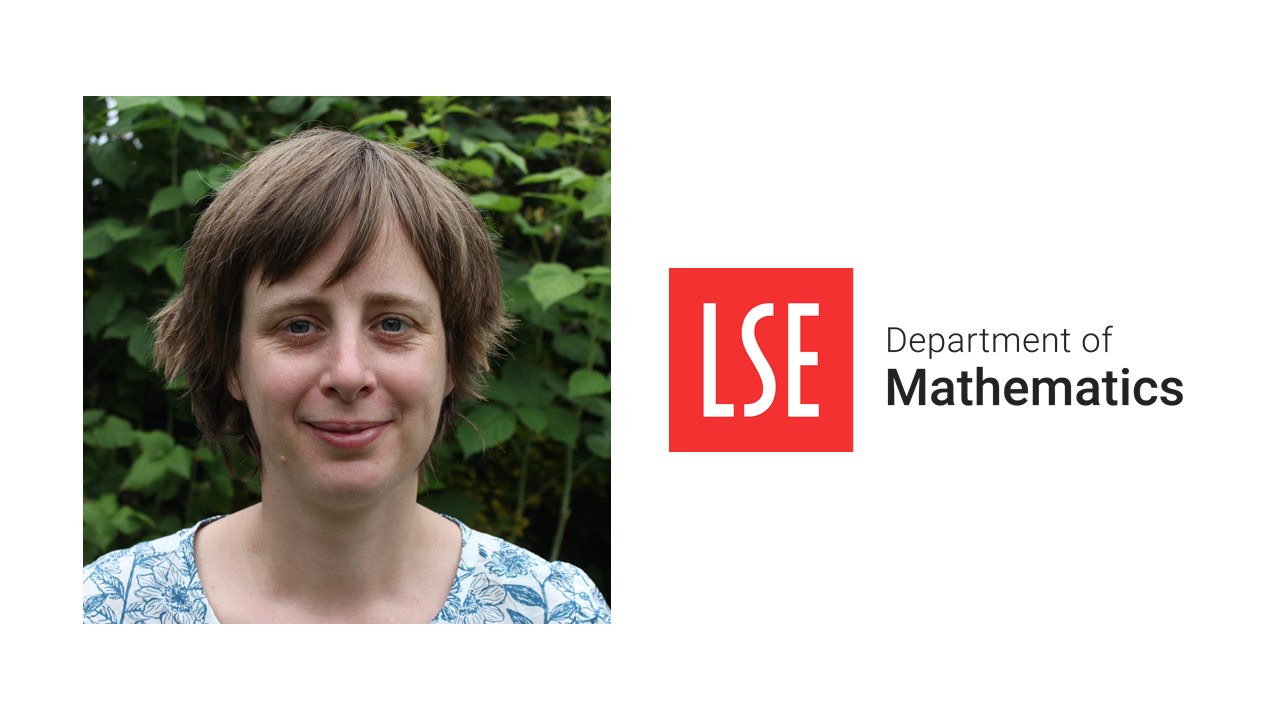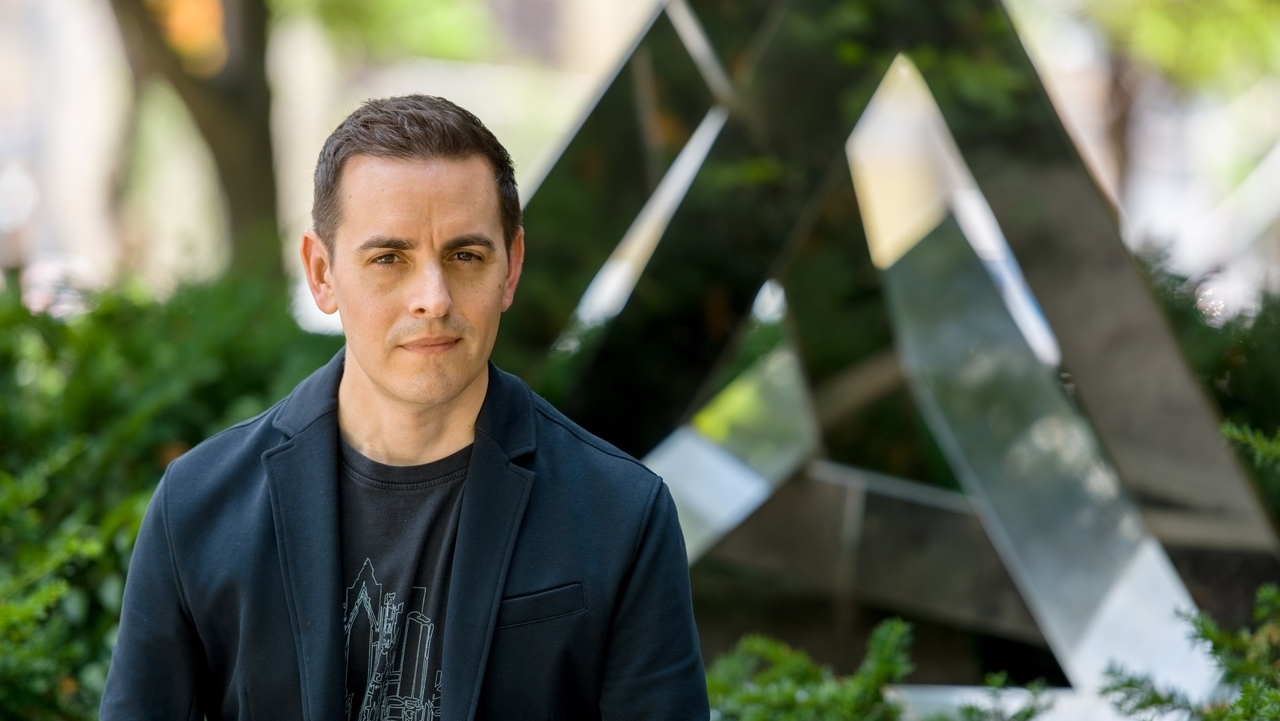Dr Galit Ashkenazi-Golan is an academic in the Department of Mathematics at LSE. She joined the faculty in September 2021 and is an Assistant Professor in the Game Theory group.
In this post, Dr Neil Olver finds out about Galit’s career prior to joining LSE, her research interests, and gets some great restaurant recommendations too.
Could you say a bit about yourself and your academic trajectory?
Yes, I studied for my degrees formally at Tel-Aviv University, in the School of Mathematical Sciences. I then spent two and a half years during my PhD almost entirely at Ecole Polytechnique in Paris mainly for family reasons. However, I also wanted an academic adventure too! After this, I returned to Israel to finish my PhD.
At the time, I did not want to go abroad because I had just had a baby and did not want to continue with a postdoc. Instead, I went to industry and did game theory-based consulting. Along with two other professors, we started a small division within a large consulting group. During this period, I was working for the firm full-time on trying to integrate game theory within the organisation. We ended up doing lots of auctions; in particular, for, various governmental bodies in Israel, advising them on how to best structure auctions for their needs. After building our knowledge and experience, we decided to start our own firm, where we also added statistics-based consulting.
Meanwhile, I also kept teaching at the university part-time as I didn’t want to stay completely away from the academic world. This led to a more permanent teaching position at a small college near Tel Aviv University, where I taught mathematics to aspiring teachers. Whist teaching side-by-side with my consulting role, I also went back to research because I missed the environment and the intellectual challenge. I thought having a more permanent teaching position would help, especially as it was connected to the university, but I soon realised that the workload was not manageable.
After this realisation, I asked the university about going back to research full-time; they said yes, and were able to raise the funds for that, so I left my teaching and consulting jobs, and started a kind of late postdoc for five years. I went back to my PhD research and started lots of new collaborations. I felt like I was given a second chance; it was great, and something that I really wanted to capitalise on.
Was it difficult going back to research? You really came back with a bang, with many impressive publications very quickly.
It was difficult in the sense that whilst my PhD was written quite independently and so contained lots of original ideas, it was also not very well written. So, revisiting it after some years, and trying to revise it into something that people could understand and appreciate, was not easy. To put this into context, I was working on this with my supervisor (Prof. Lehrer), and he said that he’d never worked so hard on writing a paper!
However, I was fortunate as I had the full support of my supervisor and I also had lots of people to work with, including many visitors. I was lucky enough to be surrounded by people who were willing to teach and guide me at the beginning, so this allowed me to enter new areas that required deeper techniques than what I had used in my PhD work.
What attracted you to LSE?
It was a combination of things; I think the stars were aligned! My husband is a high-tech entrepreneur and his firm’s R&D is based in Tel Aviv, while the product itself is in London. Before Covid times, he would spend a quarter of his time in London. The company was about to get a large investment which meant that he would want to spend more time with customers and the product, and less with development. My children are teenagers now and supported this move. So, London was attractive for many reasons.
In addition to this, I’d also met some of the faculty in the game theory group before, Bernhard and Olivier, so I knew I’d be happy to join the team.
We’re very happy that you came! Are there big differences in the way students behave in Israel compared to here?
Students in Israel are generally a lot older, due to the mandatory military service. Because of this, they are more confident; they’re very vocal and ask a lot of questions. The students here tend to be more reserved and less vocal. However, we get to see them develop confidence, grow and begin to think about their future. And, of course, the students here are also a lot more international, which makes things very interesting.
Let’s talk a bit about your research. Dynamic games are one main focus of your work; can you tell us something about these?
Dynamic games are games that involve time. One simple example is a game that repeats itself many times, giving rise to some new behaviours. For example: perhaps I will reward you in the future based on actions you take right now. Or I might threaten you with retaliation. So, there is a dynamic that conditions on past behaviour.
So iterated prisoner’s dilemma would be an example of this?
Yes, exactly. If you think about prisoner’s dilemma played once, compared to being played some finite number of times, you get the same result. But if you play it infinitely many times, you get a much richer set of behaviours that are in correspondence with what we call equilibria.
Another situation is a game that changes over time. It can be that the environment in which the game is played changes over time (for example, Markov games), or it can be that the actions players take impact how the game behaves in the future (for example, stochastic games). One type of game in this setting, which is simple and well-known, but still one of the biggest riddles in game theory, is quitting games. We don’t know if equilibria exist there.
What is a quitting game?
You have a set of players, and each player has two actions; either continue or quit. When at least one player quits, the game ends, and each player gets a specified payoff (different players can get different payoffs). The payoff a player gets depends only on the set of players that choose to quit.
Alternatively, if the game goes on forever, with nobody ever quitting, then also each player gets some specified payoff. It’s a rather simple game, but we do not know if these games always have an equilibrium. We know that the answer is yes if there are just two players or just three players. I expect that the answer is still yes for four players. For five or six players — ask different experts and you’ll get different answers as to what they believe!
Another type of game that I recently have been interested in is opinion formation in networks. The classic model is we describe a social network with a graph, and each person has an opinion about some product, perhaps random from some distribution. At each period, each person weighs up the opinions of their neighbours in the network, and adjusts their opinion, say to be the average of their neighbours’ opinion.
There are lots of interesting questions about these games, for instance, the impact of a stubborn agent who doesn’t change their opinion; how far does their opinion spread? For finite networks we know it can spread through the entire network; for infinite networks, it’s a very interesting question.
You also mention computational game theory among your interests. What does this mean?
Computational game theory is concerned with the complexity of computations. So, we want efficient algorithms for computing things like equilibria, not just to discuss their structure. Or trying to come up with algorithms that work online, meaning that information is streaming in over time, and you need to make decisions as the information is coming in. For example, you want to sell something, and customers are coming one by one. 
Another interface between game theory and computation is reinforcement learning, especially deep reinforcement learning. We see that deep reinforcement learning obtains excellent results when one decision-maker makes choices in an environment that doesn’t change too much. It also does quite well for zero-sum games. But for non-zero-sum games, we don’t know what’s happening; theory is currently lagging-behind practice. It is being used in practice, and it seems that learning agents learn how to cooperate and learn how to play very complicated strategies. When we investigated these types of behaviours in repeated games, we were criticised that this was too complicated — real agents will not behave this way. But apparently, computers can and do learn these complicated strategies!
How do you like London so far?
I love London. I find that it’s very heterogeneous; sometimes you take a turn off the main street and you’re in a completely different environment. I love walking the streets of London, it’s one of my favourite things to do.
Any favourite restaurants (especially for Israeli food!) in London?
Ah, there’s one that opened just a few weeks ago! It’s called Miznon, a Hebrew word for good hummus, good falafel. It’s in Soho, so not too far from LSE. Another restaurant we like is called Chotto Matte, it’s also in Soho.
Thanks very much, Galit!
It’s been a pleasure!





